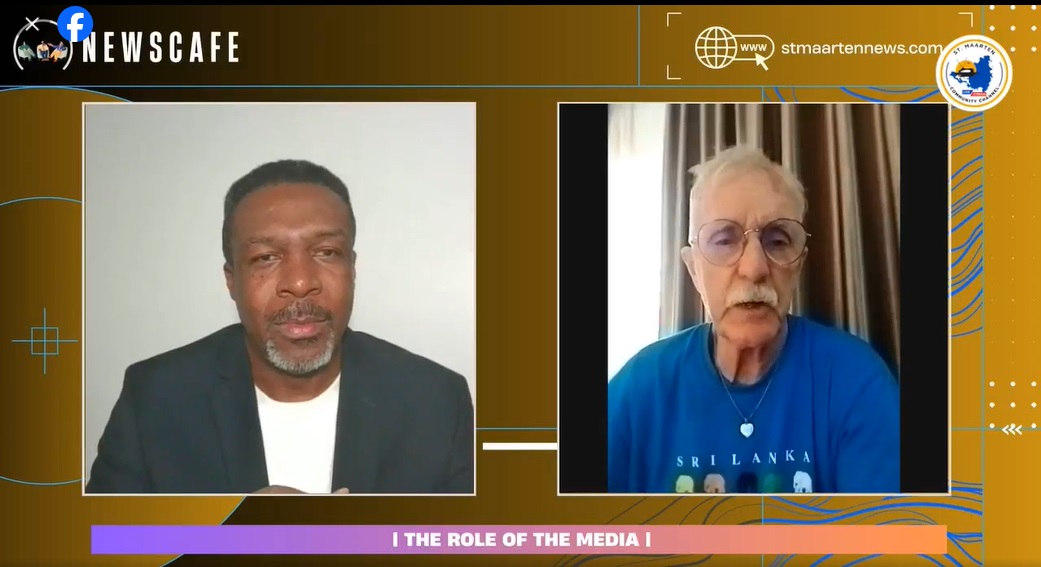The art of critical thinking

By Hilbert Haar
Is it the role of the media to educate as some politicians seem to think? I strongly disagree with that idea. Schools educate. Parents, if you’re lucky, educate as well. Serious news media inform.
Back in the day, when a newspaper was considered to be a gentleman, people trusted what they read but those days are long gone and that makes it rather complicated to get your hands on information that is actually true.
If we take the media landscape in the Netherlands as an example, we see that there are only a couple of big players left: The Telegraaf, the Volkskrant, Trouw, NRC and the Algemeen Dagblad. In St. Maarten we do not have the luxury of this level of diversity.
Theoretically it is possible to read a story in one newspaper and read the same story in another one, but those stories will never be the same, because the angle editors choose depends on the newspaper’s political orientation. The Telegraaf is rightwing, the Volkskrant is leftwing and Trouw and NRC opt for a more balanced and fact-based approach. I am sure that this does not do every newspaper justice but you get the idea: readers have a choice and they have an opportunity to look at news stories from different angles.
The question is of course: do all these readers do that? Or do they stubbornly believe whatever the paper they are subscribed to is serving them? And where does this leave newspaper-readers in St. Maarten?
Our choices are rather limited. We have only one serious print publication -The Daily Herald – and one serious online news outlet – StMaartenNews.com. That’s it. There are obviously other websites that want you to believe they are in the business of news reporting, and up to a point they could be right, but readers have to be careful here.
Why? Because some of these publications, and I am not going to name them, prefer causing chaos and suspicion over fact-based reporting. They can’t help it because they are not professionals and they have never heard of ethics in journalism. And if they have heard about ethics, they don’t care about it. Add to the mix that some of these outlets are getting paid to publish certain stories and you know: as a news consumer, your goose is cooked.
So how do readers get to the real heart of any matter? I would say that readers are well advised to do some critical thinking. Who is the messenger? Who is the source of that story? Does whatever they are claiming make any sense at all? What do other media report about the same topic?
Maybe you understand now what our real problem is: the lack of critical thinking. In a community where rumors and gossip are served for breakfast, lunch and dinner that is, in my mind, dangerous.
Stories that are not fact-based tend to cause serious damages to those who are its subject. If you publish a story you must be able to back it up with irrefutable facts. If you don’t have those facts, you don’t have a story.
In 2010, when I was working for the Today newspaper, I revealed how Maria Buncamper-Molanus and her husband Claudius sold a piece of land they held on long lease for $3 million. I did not make anything up because I had a copy of the Cadastre-documents in my possession. It was a fair story and as a result, Buncamper-Molanus had to step down as our country’s first Minister of Public Health.
Theo Heyliger, at the time at the peak of his political powers asked me this question: “Am I next on your list?”
I had to explain to him that I don’t have a list. This is not how I practice my profession. If I come across information that is worth publishing (and it happens to be about any politician) sure, I will use that information. But I have never been, and will never be, on a witch hunt to see who I can bring down next.
That is not how journalism is supposed to work. Journalists inform, journalists pose critical question, journalists research and while they are at it, they never get to the point where they say: I trust my government.
One more example to brighten up your day. There was a teacher at the Genevieve de Weever School who was always extremely rude to her pupils, so much so that in the end she was removed and sent to the vocational school. When I researched this teacher, I came across a picture of her on social media. In this picture she showed viewers her middle finger.
I published that picture on the front page of Today. Guess what happened: Silveria Jacobs, at the time minister of education, criticized the newspaper for publishing the picture instead of telling the teacher that her public display of gross rudeness was inappropriate.
This shows how your government at times behaves like the Catholic Church. Teachers who cause problems at one school are moved to another school, the way pedophile priests are moved from one post to the next. In both cases, children are the victims.
So, one more time. if you are interested in truthful and reliable information from the media, begin with an exercise in critical thinking. Then ask yourself the questions I have posed above. And do not forget; never trust your government.
###
Watch Hilbert Haar on News Cafe on Facebook
Watch Hilbert Haar on News Cafe on Youtube


























